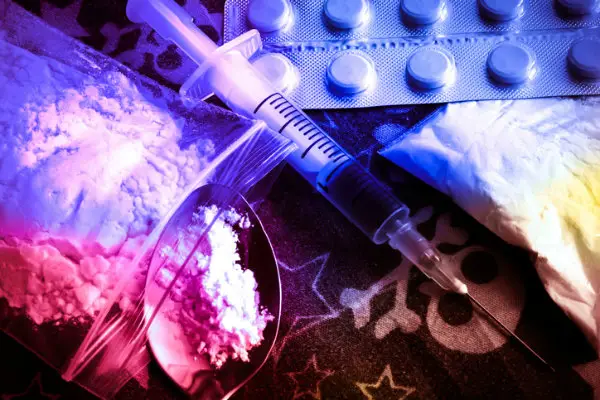Drug Abuse

What is Drug Abuse?
Drug abuse refers to the harmful or hazardous use of psychoactive substances, including alcohol, prescription medications, and illicit drugs such as cocaine, heroin, and methamphetamine. It often leads to addiction, a chronic condition characterized by compulsive drug seeking and use despite harmful consequences. Addiction alters brain function and behavior, making it difficult for individuals to stop using drugs even when they want to.
Drug abuse can manifest in various forms, including binge drinking, misuse of prescription medications, and recreational use of illegal substances. The consequences of drug abuse extend beyond the individual, affecting families, communities, and society at large.
Why Do People Abuse Drugs?
People may turn to drugs for various reasons, including:
-
Stress Relief: Many individuals use drugs to escape from stress, anxiety, or depression. Substances can temporarily alleviate feelings of discomfort, leading to repeated use as a coping mechanism.
-
Peer Pressure: Social influences, particularly among adolescents and young adults, can lead individuals to experiment with drugs. The desire to fit in or be accepted can override personal values and caution.
-
Curiosity: The desire to experience new sensations can drive people to try drugs. Curiosity can be heightened by media portrayals or social circles where drug use is normalized.
-
Trauma: Past experiences, such as abuse, neglect, or loss, can lead individuals to seek solace in substances. Drugs may be viewed as a way to numb emotional pain or escape from traumatic memories.
-
Genetic and Environmental Factors: Some individuals may have a genetic predisposition to addiction, making them more susceptible to drug abuse. Additionally, environmental factors such as family dynamics, socioeconomic status, and community resources play a significant role.
The Effects of Drug Abuse
Drug abuse can have severe physical and psychological effects, including:
-
Physical Health Issues: Long-term drug abuse can lead to serious health problems such as heart disease, liver damage, respiratory issues, and infectious diseases (e.g., HIV/AIDS and hepatitis) from needle sharing. Overdose is also a significant risk, which can lead to death.
-
Mental Health Disorders: Drug abuse often exacerbates existing mental health issues like depression, anxiety, and bipolar disorder. It can also trigger new mental health disorders, leading to a cycle of substance use and worsening mental health.
-
Social Consequences: Relationships with family and friends may deteriorate due to the prioritization of substance use over personal connections. Social isolation can occur as individuals withdraw from their support networks.
-
Legal Issues: Many drugs are illegal, and possession or use can lead to arrest, fines, or incarceration. Legal troubles can further complicate recovery efforts and strain relationships.
Recognizing the Signs of Drug Abuse
It’s essential to be aware of the signs that someone may be abusing drugs:
-
Changes in Behavior: Sudden changes in mood, secrecy, or withdrawal from family and friends can indicate drug abuse. Individuals may become more irritable or anxious.
-
Physical Symptoms: Bloodshot eyes, slurred speech, weight loss or gain, and neglect of personal hygiene are common physical signs of drug abuse.
-
Decline in Performance: Poor performance at work or school may indicate substance abuse. This can manifest as missed deadlines, decreased productivity, or lack of interest in previously enjoyed activities.
-
Financial Problems: Unexplained need for money, borrowing from friends or family, and sudden financial difficulties can be red flags for drug abuse. Individuals may prioritize spending on substances over essential needs.
How to Help Someone Struggling with Drug Abuse
If you suspect someone is abusing drugs, consider the following steps:
-
Approach with Care: Talk to them in a non-judgmental way. Express your concern and willingness to help. Use “I” statements to avoid sounding accusatory, such as “I’ve noticed you seem different lately.”
-
Encourage Professional Help: Suggest they seek help from a healthcare professional or a support group. Offer to help them find resources or accompany them to appointments.
-
Be Supportive: Offer your support throughout their recovery journey, but also set boundaries to protect your well-being. Understand that recovery is a process and may involve setbacks.
-
Educate Yourself: Understanding drug abuse can help you provide better support. Familiarize yourself with local treatment options, support groups, and educational resources.
Prevention of Drug Abuse
Preventing drug abuse is crucial and can be approached through:
-
Education: Teaching individuals about the risks associated with drug use can deter experimentation. Schools, families, and communities should provide accurate information about the effects of drugs.
-
Healthy Coping Mechanisms: Encouraging activities like exercise, art, music, or talking about feelings can help individuals manage stress without turning to drugs. Mindfulness and relaxation techniques can also be beneficial.
-
Community Support: Engaging in community programs can provide a support network for those at risk. Programs that promote healthy lifestyles, mentorship, and peer support can reduce the likelihood of drug abuse.
-
Family Involvement: Open communication within families about drug use and its effects can foster trust and understanding. Families should create an environment where individuals feel safe discussing their struggles.
Conclusion
Drug abuse is a complex issue that affects individuals, families, and communities. By understanding its causes, effects, and signs, we can better support those in need and foster a healthier society. If you or someone you know is struggling with drug abuse, reaching out for help is a vital step towards recovery. Support is available, and recovery is possible.
This information is not intended to replace advice given to you by your health care provider. Make sure you discuss any questions you have with your health care provider.

